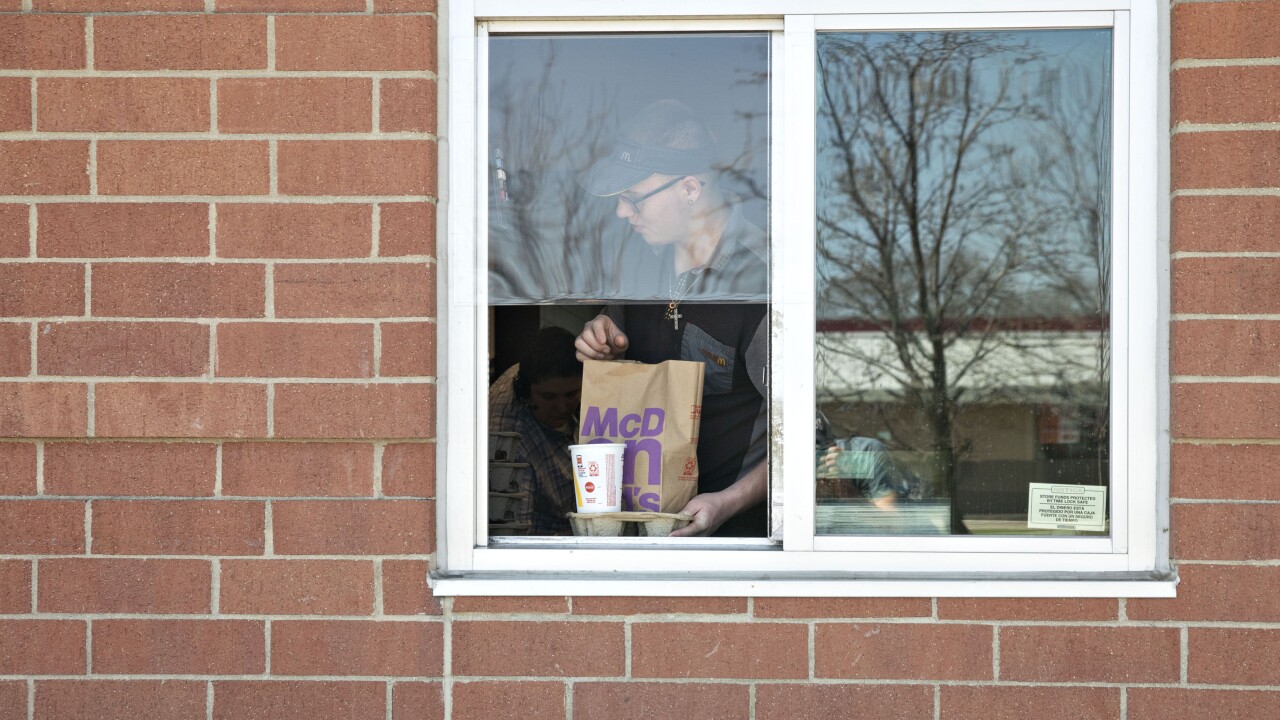(Bloomberg) – The Senate rejected Majority Leader Mitch McConnell’s healthcare proposal late Tuesday at the start of several days of debate with no clear idea of what Obamacare-replacement plan the senators will ultimately be asked to pass.
The 43-57 vote against a modified version of McConnell’s plan, with 60 required to adopt it, came hours after a dramatic 51-50 vote to begin debate. Vice President Mike Pence broke a 50-50 tie after Senator John McCain, who is undergoing brain-cancer treatment, flew in from his home state of Arizona to cast the tying vote to move the bill forward.
The Senate plans to vote Wednesday on an amendment similar to an Obamacare repeal bill passed in 2015 by the Senate and vetoed by President Barack Obama. That proposal is also expected to fail, and it will be followed by a number of other proposals.
McCain entered the chamber to applause from Republicans and Democrats, but then fired off a warning to his own leadership, saying he won’t vote to pass the latest version of the GOP health bill.

“We keep trying to win without help from the other side of the aisle,” McCain said in a speech on the Senate floor after the vote. “We are getting nothing done, my friends, we’re getting nothing done.”
“All we’ve managed to do was make more popular a policy that wasn’t very popular,” he added, referring to Obamacare.
‘Giant Step’
President Donald Trump praised Senate Republicans for the vote to open debate, calling it a “giant step” to begin dismantling Obamacare.
“The Senate must now pass a bill and get it to my desk so we can finally end the Obamacare disaster once and for all,” he said in a statement.
Two Republicans, Susan Collins of Maine and Lisa Murkowski of Alaska, voted not to open debate. Both have insisted that Obamacare shouldn’t be repealed without an adequate replacement. Opposition from one more Republican would be enough to sink a healthcare bill.
McConnell is aiming for a final vote this week, but the path is unclear and it’s far from certain he’ll get the votes to pass a final bill. John Thune of South Dakota, the No. 3 Senate Republican, said he expects the Senate to hold an all-night session Thursday into Friday, known as a "vote-a-rama," where senators in both parties will be able to offer nearly unlimited numbers of amendments.
"This is just the beginning,” McConnell told reporters. “We’re not out here to spike the football.”
‘Fight and Fight’
Senate Democrats pledged to fight against all of the GOP’s repeal efforts.
“We will do everything we can inside this building,” Senate Minority Leader Chuck Schumer of New York said at a news conference, adding that people outside Washington should organize too. “We are going to fight and fight and fight until this bill is dead.”
The McConnell amendment defeated Tuesday night included a controversial provision from Republican Ted Cruz of Texas that would allow insurers to offer stripped-down plans that exclude people with pre-existing conditions, charge women more, and offer far skimpier benefits. The version also included language from Rob Portman of Ohio that would provide an additional $100 billion for those affected by provisions rolling back Obamacare’s expansion of Medicaid.
"It is a prescription for trouble for millions of Americans," Democratic Senator Ron Wyden of Oregon said of the amendment.
An earlier version of McConnell’s bill would cause 22 million fewer people to have health care by 2026, the nonpartisan Congressional Budget Office said. The Cruz and Portman provisions required 60 votes to advance because they hadn’t been analyzed by the CBO, McConnell said.
Republican leaders have promised senators they’ll each get a chance to vote on their preferred plan, with a final measure to be put together by leadership at the end of the debate.
Senators may also consider a so-called skinny repeal that would eliminate the requirements that individuals obtain insurance and employers provide it to their workers, while keeping the expansion of Medicaid.
Markets Unmoved
Healthcare stocks were unmoved by the vote to begin debate, barely budging after senators approved the motion. Hospital stocks had dropped earlier in the day after HCA Healthcare Inc. reported weaker-than-expected earnings results. The BI North America Hospitals Valuation Peer Group was down 4.6% as of 3:06 p.m. in New York.
Health insurers, many of which have already pulled back from Obamacare’s markets, were little changed, and the Standard and Poor’s 500 Managed Health Care Index was down less than 1%.
The American Hospital Association said it was “disappointed” by Tuesday’s vote, and that it opposes Medicaid cuts or other legislative action that would boost the number of people without health insurance.
“Although we are certainly disappointed by today’s development, we are also more determined than ever to help advance solutions aimed at protecting coverage,” Rick Pollack, the hospital group’s chief executive officer, said in a statement. “Any legislative efforts that entail devastating cuts to the Medicaid program or coverage losses will be opposed.”
The Senate parliamentarian issued more rulings Tuesday that complicate GOP efforts to change Obamacare’s rules on how insurance prices are set. The Senate GOP proposal would allow older people to be charged as much as five times more than young people, compared with the 3-to-1 ratio under Obamacare. The change would result in lower premiums for young people, and was backed by by Republican lawmakers who hoped it would draw more young people into the market.
But the parliamentarian said it doesn’t qualify under the fast-track procedures used by the Senate to pass the measure with 50 votes.
During this week’s debate "everything’s on the table," said second-ranking Senate Republican John Cornyn of Texas. "It’s whatever we can get out of the Senate and get to a conference" with the House to reach a compromise on a bill to be sent to Trump for his signature, he said.
The House bill, H.R. 1628, would wind down the expansion of Medicaid and eliminate $1 trillion in taxes on the wealthy, insurers and drugmakers used to fund the law. Republicans say it would allow a market-based system that would let people make more health-coverage decisions for themselves. It would replace Obamacare subsidies with tax credits based primarily on age that phase out for people with incomes above $75,000.
Trump and House Republicans celebrated the May 4 passage of the bill with an outdoor ceremony at the White House, though the president later called the bill "mean." The nonpartisan CBO said it would cause millions to lose health coverage.





